We are members of the European Trade Union Confederation (ETUC), the International Trade Union Confederation (ITUC), the Trade Union Advisory Committee (TUAC) of the OECD and the European Economic and Social Committee (EESC). Another important part of our international activities is cooperation within the International Labour Organisation, the only global tripartite organization. Its main objective is to promote respect for internationally recognized labor rights.
EUROPEAN ECONOMIC AND SOCIAL COMMITTEE
The European Economic and Social Committee (EESC) is an advisory body to the European Commission, the European Parliament and the Council of the European Union. Its main task and mission is to draw up opinions on proposals for European legislation, thus bringing the views of civil society into the legislative process. The Committee may also be asked for an opinion on an issue by the EU Presidency and issues opinions on its own initiative. It is therefore a ‘bridge’ between civil society organizations and EU decision-makers.
The Committee is made up of 329 members from all 27 EU Member States, divided into three groups: ‘Employers’, ‘Employees’ and ‘Civil Society Organisations’. The term of office of EESC members is five years. The EESC has 12 members from the Czech Republic. Lucie Studničná is the chair of the EESC’s ‘Employees’ group.
For more information, visit the EESC website.
EUROPEAN TRADE UNION CONFEDERATION
The European Trade Union Confederation (ETUC) brings together 93 national organizations from 41 European countries and 10 European sectoral federations. The ETUC’s members are organizations from the countries of the European Union, the European Free Trade Association, countries preparing to join the EU and some other countries. The ETUC thus represents the interests of around 45 million members. We have been a full member of the ETUC since December 1995.
The ETUC was founded in 1973 at its founding congress in Brussels. It is recognized by the European Union, the Council of Europe and the European Free Trade Association as the only representative cross-sectoral trade union organization at the European level.
Our membership of the European Trade Union Confederation makes us part of the European social dialogue, which is conducted at both sectoral and inter-sectoral level. At the intersectoral level, the European social dialogue is conducted on a bipartite basis between the following organizations: the European Trade Union Confederation (ETUC), BusinessEurope, SGI Europe (formerly CEEP) and SMEunited. At the sectoral level, the European sectoral federations of trade unions and employers participate in the negotiations.
The ETUC main objective is to promote the European social model, to develop a united, peaceful and stable Europe where workers and their families can fully enjoy human and civil rights and live in a high standard of living.
For more information, visit the ETUC website.
INTERNATIONAL TRADE UNION CONFEDERATION
The International Trade Union Confederation (ITUC) is the largest trade union federation in the world. It was formed on 1 November 2006 by the merger of the International Confederation of Free Trade Unions (ICFTU) and the World Confederation of Labour (WCL).
The main areas of activity and interest of the ITUC are trade unions, human rights, economy, society, working environment, equality, non-discrimination and international solidarity.
For more information, visit the ITUC website.
TRADE UNION ADVISORY COMMITTEE TO THE OECD
The Trade Union Advisory Committee (TUAC) of the Organisation for Economic Co-operation and Development (OECD) is an international trade union organization with consultative status with the OECD. TUAC represents the views of the trade union movement at the annual meeting of the OECD Council of Ministers and at the regular meetings of OECD committees.
TUAC membership includes 58 trade union centers from OECD countries representing 50 million workers, as well as affiliates in Brazil, Indonesia and South Africa. TUAC operates a secretariat based in Paris. TUAC traces its origins back to the Trade Union Advisory Committee set up under the Marshall Plan in 1948. When the OECD was established in 1962, TUAC continued its work of representing trade union priorities in OECD policy-making.
TUAC’s main mission is to:
- influence the formulation of OECD policies and recommendations in areas that are most important to trade unions,
- help trade unions use OECD recommendations and data in their own efforts to influence national governments and employers,
- coordinate trade union involvement in the G7 and G20 together with the International Trade Union Confederation.
TUAC has three permanent working groups:
- Economic Policy
- Education and Skills
- Multinational enterprises
The working groups prepare TUAC’s positions for both the bi-annual TUAC members’ meetings (plenary sessions) and for consultations with the OECD. The working groups are open to all TUAC member organizations, international trade union federations and partner organizations.
INTERNATIONAL LABOUR ORGANISATION
The International Labour Organization (ILO) is a global, specialized, tripartite organization whose main objective is to promote social justice and internationally recognized human and labor rights.
It was established on 11 April 1919 as a permanent agency of the Commonwealth of Nations in the framework of the Versailles Peace Process and was the first of the specialized international organizations to be admitted to the UN system in 1946. It was awarded the Nobel Peace Prize in 1969.
The core mission of the ILO is:
- To formulate international policies and programmes for the promotion of fundamental human rights, the improvement of working and living conditions and the enrichment of employment opportunities,
- to establish international labor standards, which are also guaranteed by a unique way of supervising their application, serving as a guideline for national authorities in the implementation of this policy,
- to provide extensive programmes of international technical cooperation, formulated and implemented in active partnership with Member States, to assist countries in the effective practical implementation of this policy,
- to provide training, education, research and publish materials to assist in this effort.
For more information, visit the ILO website.
EUROPEAN PILLAR OF SOCIAL RIGHTS
The European Pillar of Social Rights is an initiative of the European Commission focusing on the social dimension of the EU. The pillar is based on the social objectives and social rights enshrined in EU primary law. The European Commission’s first outline proposes three main chapters:
- Equal opportunities and access to the labor market
- Fair working conditions
- Adequate and sustainable social protection
For more information click here.
News from our international activities:
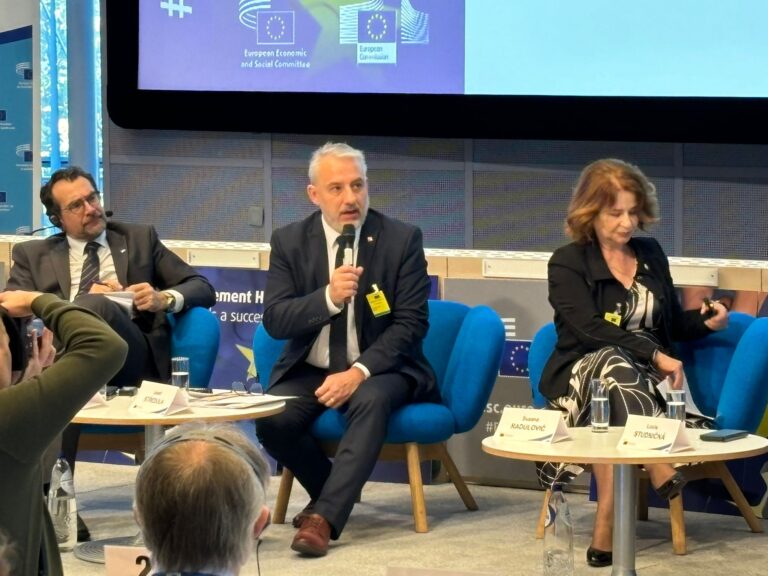
Enlargement High-Level Forum „Towards a successful EU Enlargment“
On October 24, representatives of the Czech-Moravian Confederation of Trade Unions (CMKOS), Josef Středula and Lucie Studničná, participated in the

Platform directive: No time to waste for national governments
Trade unions are calling on EU member states to waste no time in putting the platform work directive into action

Meeting with ETUC General Secretary Esther Lynch and the President of Solidarność Piotr Duda
On 30 September, the Vice-President of the European Trade Union Confederation (ETUC), Josef Středula, together with ETUC General Secretary Esther
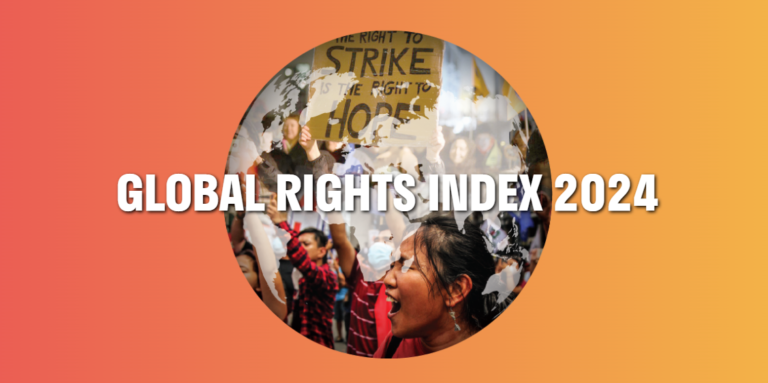
Global Rights Index 2024: Labour rights have worsened also in Europe
The International Trade Union Confederation’s Global Rights Index 2024 provides a worrying insight into workers’ rights around the world. The
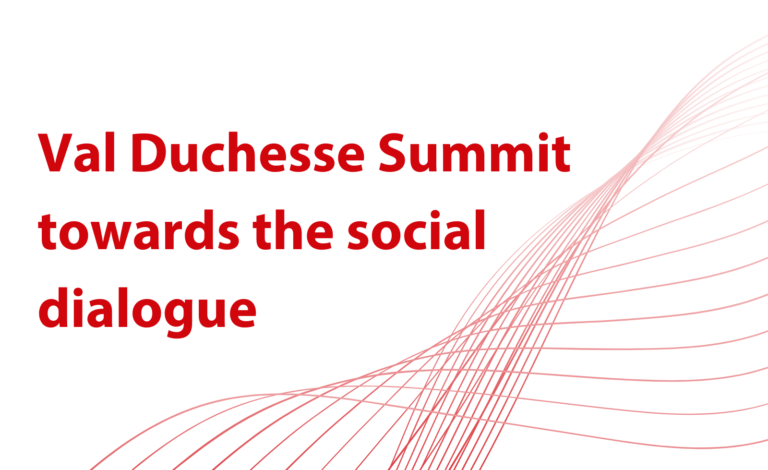
Val Duchesse Summit towards the social dialogue
Trade unions and employers agreed yesterday on measures to end the deadlock in European social dialogue and better tackle common
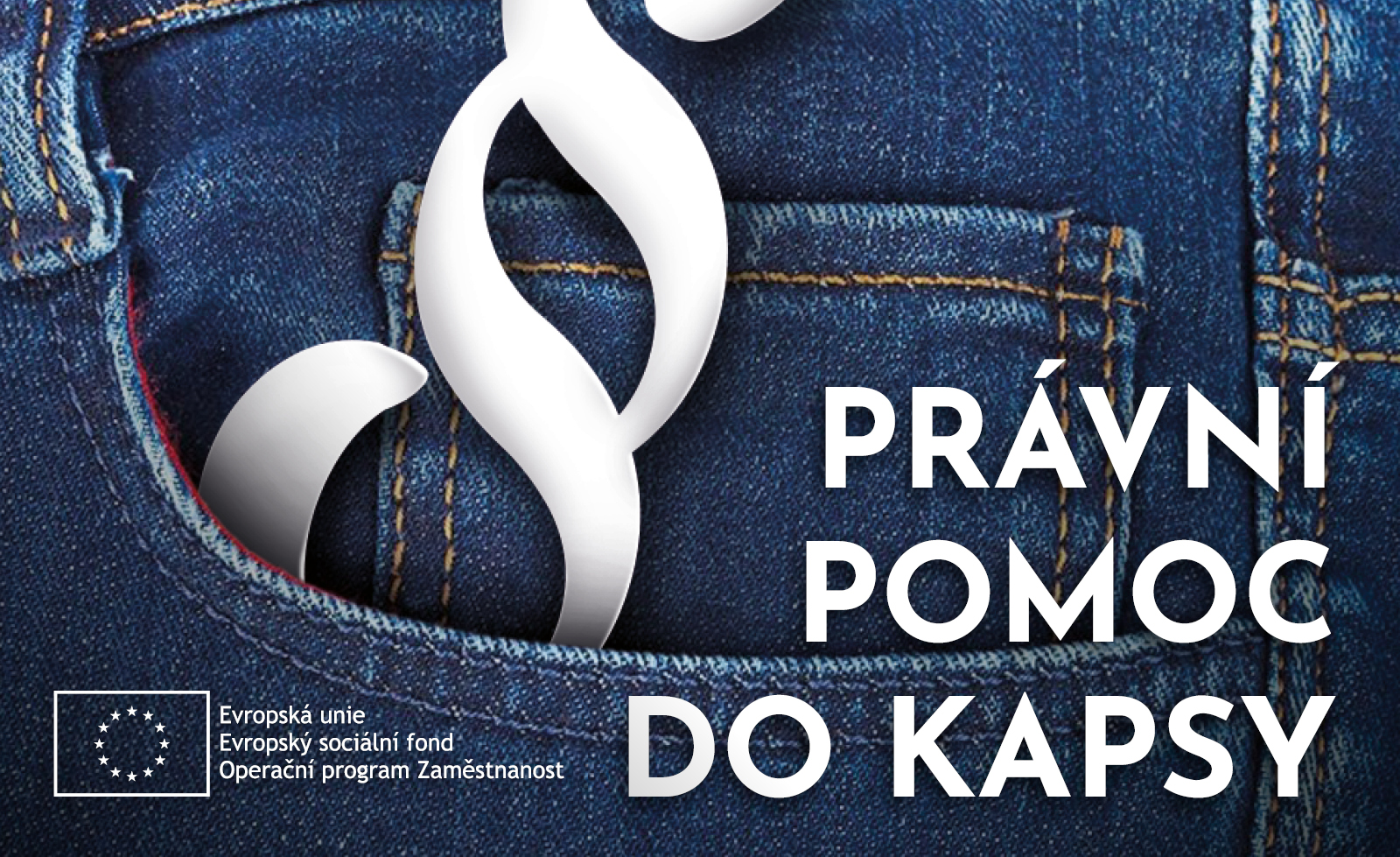
Pocket Guide to Employment Law in 9 languages
Thanks to cooperation with the Czech Office of the International Organization for Migration (IOM), our Pocket Guide to Employment Law has been translated into eight languages. As a result, basic information on legal regulations and workers’ obligations is now available in Czech, English, Ukrainian, Indonesian, Mongolian, Russian, Spanish, Tagalog and Vietnamese. How often can I be employed on a fixed-term
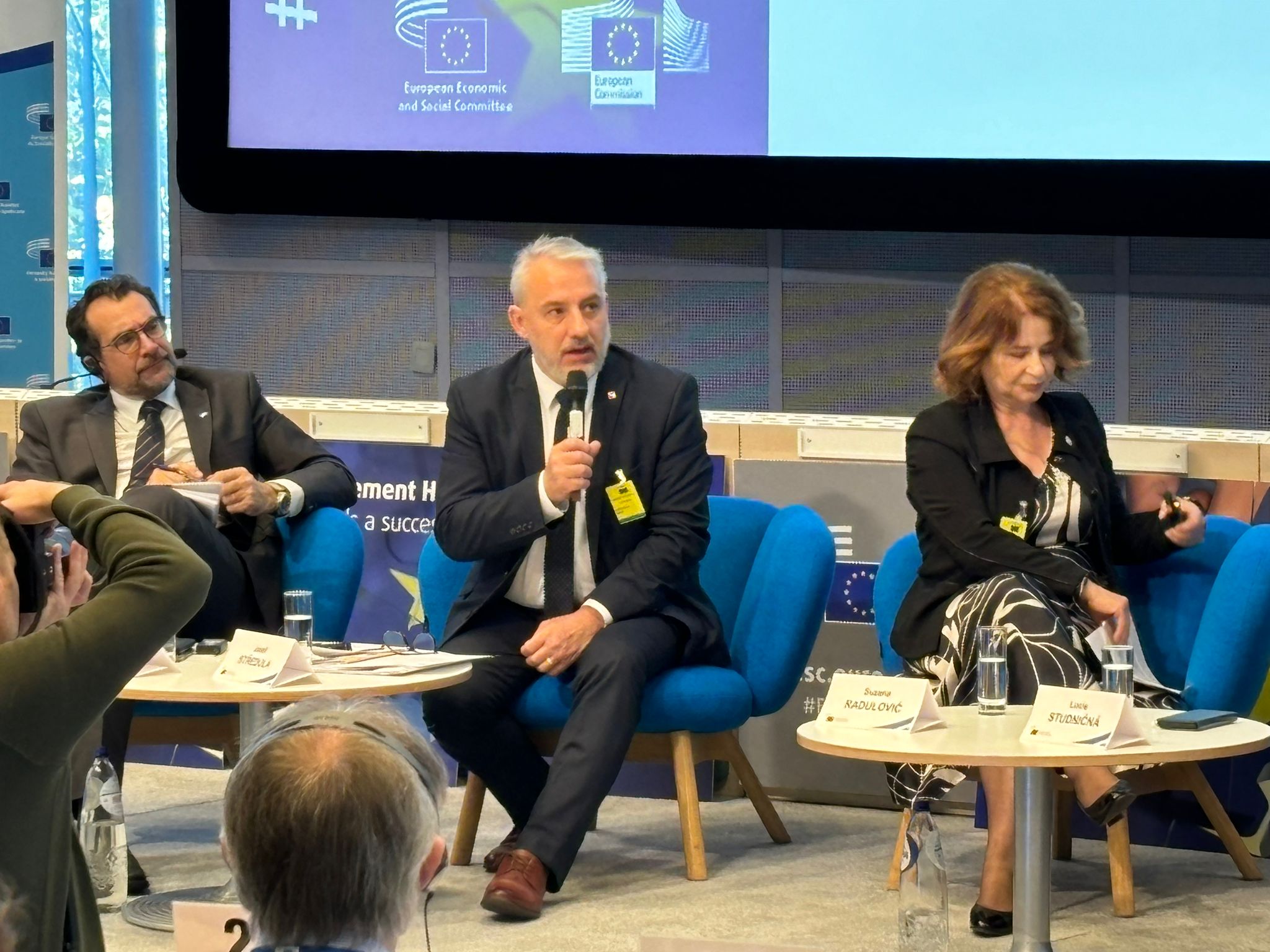
Enlargement High-Level Forum „Towards a successful EU Enlargment“
On October 24, representatives of the Czech-Moravian Confederation of Trade Unions (CMKOS), Josef Středula and Lucie Studničná, participated in the High-Level Forum on EU Enlargement titled “Towards a Successful EU Enlargement.” This event was jointly organized by the European Economic and Social Committee (EESC) and the European Commission. Held immediately after the EESC’s plenary session, the forum welcomed over one
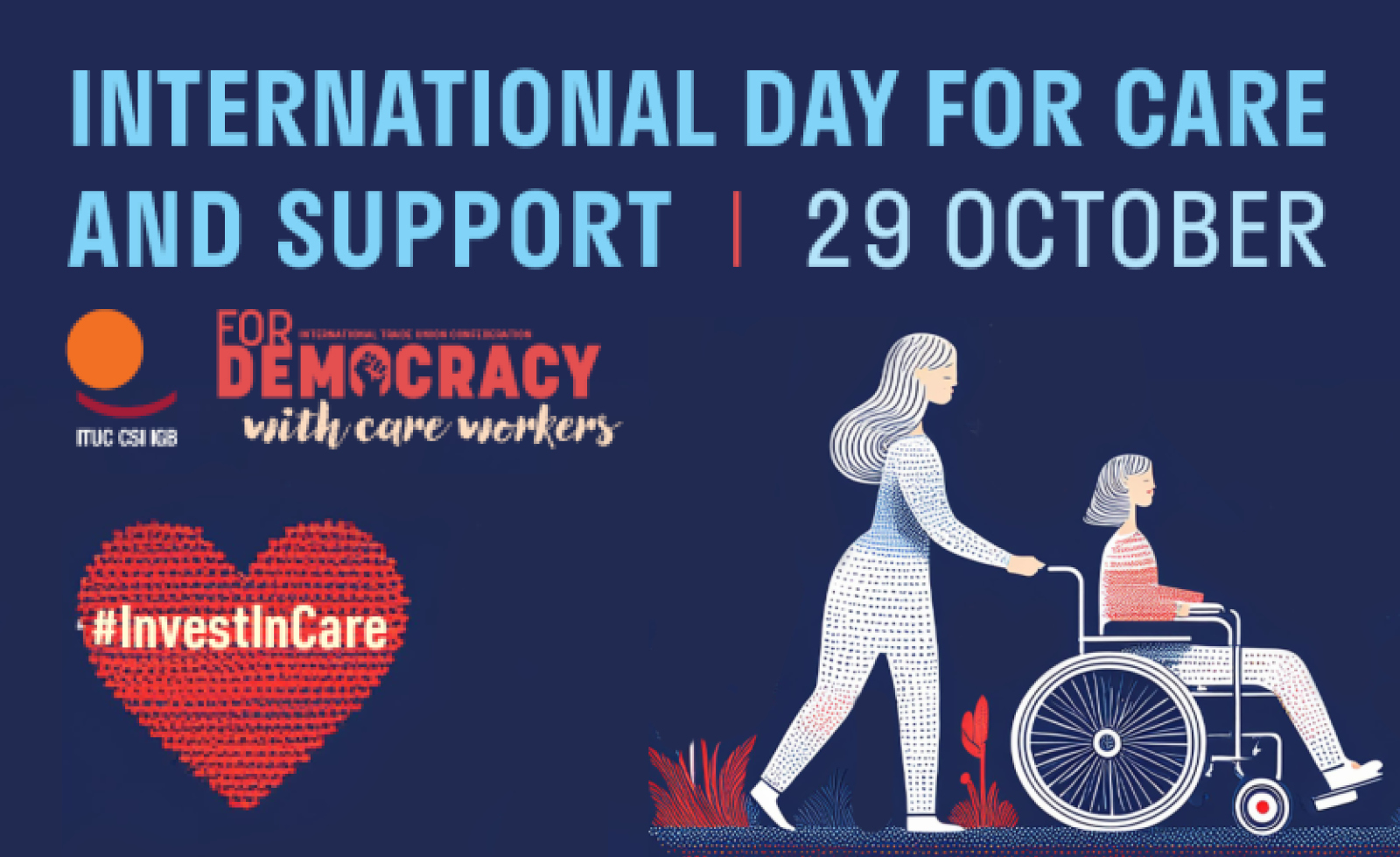
International Day for Care and Support: 29 October
Care responsibilities are excluding and holding back millions of women worldwide from taking paid employment, and with climate and demographic changes on course to increase the demand for care, measures to support the care economy are urgently needed, according to a new International Labour Organization brief. This stark gender discrepancy highlights the disproportionate role that women take on in child-rearing,

Platform directive: No time to waste for national governments
Trade unions are calling on EU member states to waste no time in putting the platform work directive into action at national level. Millions of workers have been forced into bogus self-employment by platform companies, meaning they miss out on their most basic rights as workers such as the minimum wage or sick pay. The directive adopted today by the